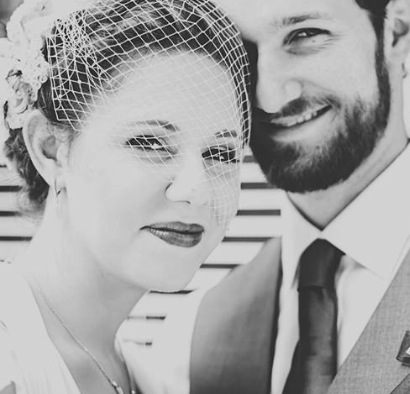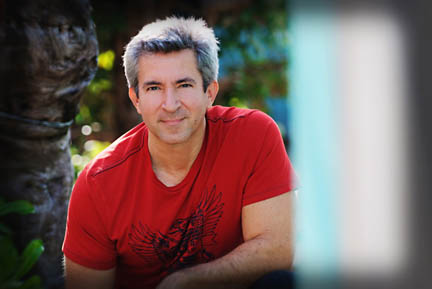Podcast: Play in new window | Download
Does God Exist? Join The Conversation
Atheists, Agnostics & Apologists. Oh my! What is an authentic way to approach the question, Is there a god? Is there an obvious answer to this age-old inquiry? Can we use all resources available to us, or should some methods be banned? This episode calls upon the perspectives of Christian apologists (defenders of the Christian faith), Atheists, and Agnostics. Are these differing perspectives hopelessly at odds? And what would it look like if we had a team of skeptical investigators like Sherlock Holmes and C.S. Lewis at our disposal? Join Christian apologist, Siobahnne Duhé (Biola University), Australian Atheist Magazine editor, Tracy Burgess, and award-winning author and skeptic, Guy P. Harrison, as we consider the possibilities.
Is There Really a God? Our Episode 2 Guests Chime In
 Tracy Burgess is editor of the Australian Atheist magazine and on the Committee of Management for the Atheist Foundation of Australia. She stopped believing at the age of 7.
Tracy Burgess is editor of the Australian Atheist magazine and on the Committee of Management for the Atheist Foundation of Australia. She stopped believing at the age of 7.

Siobahnne Duhé: is a Blogger and graduate from the Masters program in Christian Apologetics at Biola University.

Guy P Harrison is the award-winning author of several books including, Think: Why You Should Question Everything and 50 Reasons People Give for Believing in a God.



How can the apologist claim to 99.9% know?
There is no verifiable evidence for any of the supernatural claims of any religion.
Does building “The Bridge” mean that anyone can make claims unchallenged?
DJ
Hey DJ,
The Bridge is a “meeting place” to begin having an ongoing knowledgeable and respectful discussion (rather than the standard debate format). So bravo to you for asking a great question to kick it off! I’m working on how these comments actually function, so bear with me! And based on my interview with Ms. Duhé, I got the impression that there are only certain “days” where she feels 99.9% certain. But to clarify fully, I invite you to engage directly with the guests, many who are linked via Social Media. And perhaps she’ll see your comment here as well and offer her remarks if possible. And just to play devil’s advocate, when you say there is “no verifiable evidence,” what percentage of certainty would you be willing to assign to that? Thanks! 🙂
Hi Jeremy,
You said “I got the impression that there are only certain “days” where she feels 99.9% certain.”
What happened on the various days? The evidence didn’t change. The classical arguments for the existence of God didn’t suddenly get better. WLC’s Kalam syllogism didn’t suddenly lose a logical fallacy or 3.
This position shows a clear lack of understanding of epistemology from the apologist.
Believing something to be true is not equivalent to knowing it to be true.
Hey DJ,
I must admit, I have never really taken in a full consideration of William Lane Craig’s Kalam Cosmological Argument. Can you suggest a place for the listeners to begin considering this?
This Youtube video is one possibility: http://www.youtube.com/watch?v=M-hrP-8bmk8
Along with a very basic start on Wikipedia: http://en.wikipedia.org/wiki/Kal%C4%81m_cosmological_argument
Obviously we need to be familiar with the debates before we can “move beyond debate,” so thank you.
You asked,
And just to play devil’s advocate, when you say there is “no verifiable evidence,” what percentage of certainty would you be willing to assign to that?
Currently 100%, as there is no verifiable evidence for any of the supernatural claims of any religion. If someone was to present some, this would drop immediately to 0%.
DJ,
I think you make an important point here that deserves more investigation. I’ve really needed some clarification on terms like “evidence” and “verifiable evidence.”
One assignment I am giving myself: I have attorneys in the family, and I came across a large book and a website this eve. The website contains the U.S. FEDERAL RULES OF EVIDENCE. It is 28 pages and is available here: http://www.uscourts.gov/uscourts/rules/rules-evidence.pdf
This is the U.S. Supreme Court document with the government seal. (The Federal & California Evidence Rules on our bookshelf is 496 pages, so I think I’ll start with the 28!)
I’ve never educated myself on how evidence actually works in our country. (i’ve always outsourced that to attorneys). I think you bring up an important conversation piece, and I’d like to learn more. Thanks!
First, let me say that I love this space you have created Jeremy. I am glad to listen and contribute when I can. This question is the big one and why not start there!
Your guests present interesting ideas and they are all passionate about their positions. I am too. And I have a hard time with the concept of “evidence” no matter how you slice it. I tend to agree that if there is credible evidence of the existence of God, then all doubt would be removed and the question of God is no longer a question. Faith requires a lack of proof and therefore doubt and skepticism. We stopped wondering if an apple will return to the earth when we throw it in the air because it does so every time. The Theory of Gravity is no longer a Theory in the sense that we have to test it over and over ad infinitum. We have enough evidence that gravity is real and we can make accurate predictions and apply this knowledge to our lives. Facts are, in the end, small things we can count on. Supernatural beliefs are just that: beliefs.
Your guest (the apologist) presupposes God in each and every argument/ position she cites. “God is a God who remains hidden” is the leap of faith you must take to explain the fact that we cannot see God. I might also propose that “space aliens are tricky and avoid capture and/or hard evidence that they exist and therefore they exist but are tricky.” You will all see when they finally do come and reveal themselves to us all. Circular logic does not amount to a good argument. Belief does not equal fact. I respect a persons beliefs, but not if those beliefs are proposed as evidence or as facts.
Also, it truly does not matter how many U.S. Presidents believe in and make reference to God as majorities have been wrong about so many things that I will not take time here to cite. Not to mention that political figures have a vested interest in aligning with believers as they are still a majority in America. We all just witnessed a political flip flop about gay marriage when the majority swayed in the direction of gay rights. A personal defense of your belief in God needs no more evidence than “I just believe.” The rest, I’m afraid, is not evidence but justification.
“Witnessing” an event you can’t explain is also not evidence. Humans are awfully bad at critical observation and recalling events accurately. Two people witnessing the same auto accident cannot often agree completely on what just happened. People of the past would easily confuse David Blaine with God or Jesus because they could not explain what they had “witnessed” (illusionists know how to confuse we observers). Personal accounts are fallible and not reliable.
I’m afraid that, in the end, science…. yes, I said it…. SCIENCE… is our best hope to find evidence of anything. It is the best method we currently understand. It requires high levels of certainty to go forward. It is self correcting (scientists routinely challenge results and we do not consider something proven without many re-tests and reliable and valid outcomes over time). And science proposes no initial belief that must be proven, so it is more likely to be objective and blind (in as much as we humans are capable of containing and minimizing our bias). We should not confuse faith and science. They are distinctly different approaches to understanding the universe and our place in it.
Maybe we could agree that there is a basic human curiosity about why we are here, why we can wonder and other animals seem not to, and whether there is something unseen (psychic or emotional) that binds us all together in this effort. Maybe that unknowable thing or idea is what we have personified as a God. A God like that, an unifying principle rather than a being or a place, would be achieved if we all became more and more compassionate, understanding, caring, and generous with each other. This is what atheists likely supplant the need for a God with and it seems to me a loving way to live. One does not need a religion or a God or a bible to know that we all benefit when we all love.
Thanks Russ! I’ll be exploring the world of evidence more, and your David Blaine reference will tie in nicely with my next episode, “Am I deceived?” where I will indeed be investigating the world of illusionists, shows like “To Tell the Truth” and “Bluff the listener” and more!
I appreciate your comments!
Wow! That was long!
P.S. Another thing! Proof “beyond a reasonable doubt” is an interesting phrase. What does “reasonable” mean? Within the limits of the use of reason. And what are those limits? That is what the rules of logic have been developed to govern over the course of human thought. It does not mean simply my specific efforts at reason. I may not utilize reasonable arguments when considering a belief I have already been committed to. I will skip some rules, bend others, and outright defy some that are inconvenient and do not align with my wished for outcome. That is what it means when we say that “to err is human.”
I am not the final word in what is reasonable. Neither is C.S. Lewis. There are many very reasonable and logical arguments that provide for all of the “mysteries” that believers ascribe to the existence of God. Read the works of Sam Harris (The End of Faith, Letter to a Christian Nation, The Moral Landscape, Free Will, to name a few). Read Christopher Hitchens (The Portable Atheist, God is not Great, Arguably …just to name a few). And read the modern evolutionist Richard Dawkins (The God Delusion, The Greatest Show on Earth, The Blind Watchmaker). These are highly evolved thinkers who provide reasonable critique of faith and religion. Some are more militant than others, but follow their logic.
Reason, it turns out, is really powerful. If you can read these authors and their propositions, I think you will agree that they offer reasonable arguments.
Thanks again Russ. My reading list continues to grow. I have read Letter to a Christian Nation, and God is Not Great. Currently I have a shelf on my bookcase at home which includes C.S. Lewis, Sam Harris, Josh McDowell, Guy P. Harrison, Stephen Prothero, The Bible and The Qu’ran, and then expands in all directions. When I’m not around, I often wonder if they begin an all out battle of words with one another. However, I’m prone to think it’s only we humans who do that, and that the words on my shelf represent an ongoing journey of human discovery. Years after I finished Bible College, I donated my books back to the college. I really would like to re-read most of them now, and the library, Barnes & Noble and Kindle are wonderful things! I think I may start a “Reading Suggestions from our Listeners” area on my site. Thanks again!
[…] In a recent interview with The Bridge, Christian apologist Siobahnne Duhé (Biola University) noted, “I think if you set yourself up for 100% certainty, that you’re going to fail, that you can’t do it … I personally go for beyond a reasonable doubt. It’s good enough for the courts.” Admitting the possibility of error in our own conclusions is what award-winning author, Guy P. Harrison (Think: Why You Should Question Everything), names as a key attribute of all good skeptics. “In science,” says Harrison, “You can’t be 100% certain about anything … you have to leave the door just cracked a tiny bit, because anything can change. Things in the past that seemed crazy have turned out to be real. Things now that seem absolutely real and fairly certain will undoubtedly turn out to be nonsense tomorrow.” […]
[…] 002 Is There a God? […]